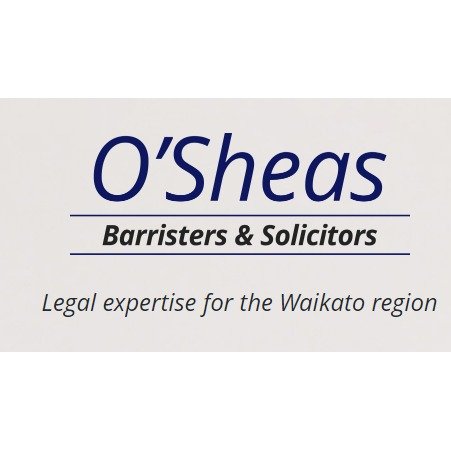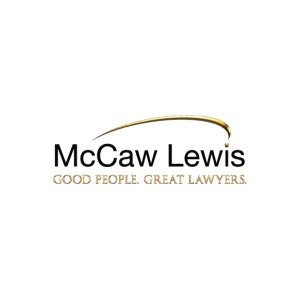Best Energy, Environment & ESG Lawyers in Hamilton
Share your needs with us, get contacted by law firms.
Free. Takes 2 min.
List of the best lawyers in Hamilton, New Zealand
About Energy, Environment & ESG Law in Hamilton, New Zealand
Energy, Environment and ESG (Environmental, Social, and Governance) law is an evolving practice area that focuses on issues related to energy production and use, environmental protection, and corporate responsibility. In Hamilton, New Zealand, this legal field deals with the intersection of business activities, environmental regulations, sustainable development, and social responsibilities. Due to the city’s growth and its proximity to significant natural resources, understanding the legal framework is crucial for individuals and businesses looking to comply with regulations, operate sustainably, and avoid costly penalties.
Why You May Need a Lawyer
Legal assistance in Energy, Environment and ESG matters can be essential in a variety of situations, including:
- Developing or expanding agricultural, industrial, or energy projects that may affect the environment
- Dealing with resource consent applications or appeals under the Resource Management Act 1991
- Navigating complex regulatory frameworks for renewable energy installations, such as solar or wind farms
- Addressing pollution complaints or environmental enforcement actions from local councils and environmental agencies
- Ensuring compliance with corporate ESG reporting and disclosure requirements
- Managing environmental liabilities during the sale or purchase of a property or business
- Responding to investigations or audits related to environmental standards
- Engaging with iwi or other stakeholders regarding land use and resource management
- Resolving disputes between neighbors or businesses over environmental impacts
- Adapting to new climate change policies or sustainability requirements
A lawyer with experience in this field can help you understand your rights and obligations, prepare documentation, represent you in disputes, and ensure that you are compliant with all relevant laws.
Local Laws Overview
Hamilton operates under several key legal frameworks that impact Energy, Environment and ESG issues. The Resource Management Act 1991 (RMA) is the central piece of legislation, aiming to promote sustainable management of natural and physical resources. The Hamilton City Council enforces local bylaws and district plans that regulate land use, emissions, water quality, and noise. Other important statutes include the Climate Change Response Act 2002, the Building Act 2004, and the Hazardous Substances and New Organisms Act 1996.
Recent focus on climate change, renewable energy, and sustainability has led local authorities and businesses to adopt more stringent reporting and mitigation strategies. Developments may require resource consents, public notification, and engagement with local iwi in accordance with the Treaty of Waitangi principles. Monitoring and compliance are overseen by both the Waikato Regional Council and central government agencies.
Understanding these laws is critical since non-compliance can result in fines, project delays, and even criminal liability. A legal advisor can help navigate these complexities and stay updated on legislative changes.
Frequently Asked Questions
What is ESG and why is it important for businesses in Hamilton?
ESG stands for Environmental, Social, and Governance. It refers to a set of standards for business operations focusing on environmental care, social responsibility, and ethical management. In Hamilton, these criteria are increasingly important due to global investment trends and local regulations promoting sustainability and transparency.
What is a resource consent, and when do I need one?
A resource consent is official approval for an activity that may impact the environment, such as land development, water use, or emissions. You need one whenever your activity could breach local rules or trigger requirements under the Resource Management Act.
How do Hamilton’s local rules affect renewable energy projects?
Hamilton City Council’s rules and district plans influence where and how renewable energy projects like solar or wind farms can be established. They may require resource consents, adherence to noise and visual impact standards, and consultation with affected parties.
What does the Resource Management Act mean for property owners?
The RMA regulates how property can be used or developed to protect the environment. Property owners may be required to seek consents for certain activities, limit pollution, or restore affected areas.
How are businesses held accountable for environmental impacts?
Businesses must comply with local and national environmental regulations, report certain activities, and manage risks. They can face inspections, fines, prosecution, or remediation orders if found in breach of their legal duties.
What role do iwi play in local energy and environmental decisions?
Iwi (Māori tribes) are key partners in decision-making processes, especially for projects impacting land, water, or taonga (treasures). Engagement is required under both local regulations and the principles of the Treaty of Waitangi.
Can individuals be prosecuted for harming the environment?
Yes, both individuals and companies can face prosecution for unlawful discharges, harming native habitats, or breaching resource consent conditions. Penalties can be significant and may include fines or imprisonment.
Does Hamilton have specific rules about hazardous substances?
Yes, under the Hazardous Substances and New Organisms Act and local bylaws, there are strict controls on the use, storage, and disposal of hazardous materials to prevent environmental harm and protect public health.
What are climate change obligations for businesses in Hamilton?
Depending on their size and sector, businesses may need to measure and report greenhouse gas emissions, create mitigation plans, and adapt to changing environmental regulations targeting climate resilience.
How can I find out if my planned activity will need a resource consent?
You should consult the Hamilton City Council or a legal expert who can review the local district plan and relevant legislation. Early advice can help you avoid delays and unexpected costs.
Additional Resources
If you need support or further information on Energy, Environment or ESG matters in Hamilton, these organizations may be helpful:
- Hamilton City Council - for resource consents, environmental bylaws, and local plan information
- Waikato Regional Council - for water management, air quality, and regional environmental policies
- Ministry for the Environment - for national environmental policies and legislation
- Environmental Protection Authority - for hazardous substances and national compliance
- Te Uru Rākau - New Zealand Forest Service, for forestry and land management guidance
- Energy Efficiency and Conservation Authority - for energy management and sustainability resources
- Local iwi authorities - for engagement and guidance on Māori interests and resource management
Next Steps
If you require legal advice or representation in Energy, Environment or ESG matters in Hamilton:
- Start by clearly identifying your legal issue or project requirements
- Gather any relevant documentation such as resource consents, council correspondence, or business plans
- Consider contacting a specialist lawyer in this field, as they will have up-to-date knowledge on local and national requirements
- Arrange a consultation to discuss your situation, possible risks, and legal options
- Stay proactive by acting early, since many issues have tight deadlines or notification requirements
Taking these steps can help ensure that your activities are compliant, your interests are protected, and you avoid unnecessary complications or penalties.
Lawzana helps you find the best lawyers and law firms in Hamilton through a curated and pre-screened list of qualified legal professionals. Our platform offers rankings and detailed profiles of attorneys and law firms, allowing you to compare based on practice areas, including Energy, Environment & ESG, experience, and client feedback.
Each profile includes a description of the firm's areas of practice, client reviews, team members and partners, year of establishment, spoken languages, office locations, contact information, social media presence, and any published articles or resources. Most firms on our platform speak English and are experienced in both local and international legal matters.
Get a quote from top-rated law firms in Hamilton, New Zealand — quickly, securely, and without unnecessary hassle.
Disclaimer:
The information provided on this page is for general informational purposes only and does not constitute legal advice. While we strive to ensure the accuracy and relevance of the content, legal information may change over time, and interpretations of the law can vary. You should always consult with a qualified legal professional for advice specific to your situation.
We disclaim all liability for actions taken or not taken based on the content of this page. If you believe any information is incorrect or outdated, please contact us, and we will review and update it where appropriate.
Browse energy, environment & esg law firms by service in Hamilton, New Zealand
Hamilton, New Zealand Attorneys in related practice areas.

















